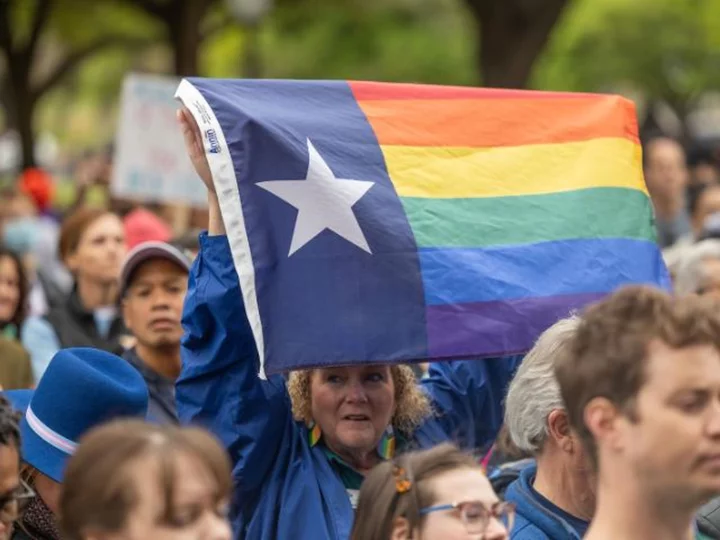A judge in Texas on Friday temporarily blocked a new law that prohibits gender-affirming care for most minors in the state.
District Judge Maria Cantú Hexsel wrote in the temporary injunction that the law would result in "the loss of access to safe, effective, and medically necessary treatment for transgender adolescents experiencing gender dysphoria."
The legislation, the judge said, "likely violates" three different sections of the Texas Constitution, including "the fundamental right of parents to make decisions concerning the care, custody, and control of their children."
The Texas attorney general's office, however, said in a news release that it had filed an appeal to the state Supreme Court that would pause the ruling pending its decision. CNN has reached out to the office for comment.
Texas would be the largest state in the US to enforce such restrictions if the law were to take effect on September 1. Cantu Hexsel's decision came the same day a judge in Missouri declined to block a similar law, allowing the state's ban on gender-affirming care for minors to take effect Monday.
Texas Republican Gov. Greg Abbott had signed Senate Bill 14 into law in June. The measure bars health care providers from providing gender transition surgeries, puberty blocking medication or hormone therapies to those under 18 in Texas, with violators at risk of losing their licenses.
The law makes minor exceptions for children who had begun receiving non-surgical gender-affirming care before June 1 and underwent 12 or more sessions of mental health counseling or psychotherapy six months prior to beginning prescription drug care. Transgender youth to whom those exceptions apply can continue their care but must "wean" off from the treatment with the help of their doctor.
Alex Sheldon, executive director at GLMA, an LGBTQ+ health advocacy group and one of the parties that filed suit, celebrated the decision Friday, saying: "We are invigorated by the court's decision to protect and uphold the rights of trans youth, their families, and health care providers in Texas."
Other plaintiffs in the suite include five families with transgender children and three doctors who provide services for transgender patients.
Gender-affirming care spans a range of evidence-based treatments and approaches that benefit transgender and nonbinary people. The types of care vary by the age and goals of the recipient, and are considered the standard of care by many mainstream medical associations.
Though the care is highly individualized, some children and parents may decide to use reversible puberty suppression therapy. This part of the process may also include hormone therapy that can lead to gender-affirming physical change. Surgical procedures prohibited under the law, however, are not typically done on children and many health care providers do not offer them to minors.
Some Republicans have expressed concern over long-term outcomes of the treatments. But major medical associations say that gender-affirming care is clinically appropriate for children and adults with gender dysphoria -- a psychological distress that may result when a person's gender identity and sex assigned at birth do not align, according to the American Psychiatric Association.
This story has been updated with additional developments.

